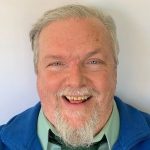Posted by Jeremy
Uncategorized
July 28, 2023
Comments Off on MADPRIDE REVOLUTION IN MENTAL HEALTH –– BRIDGING AGE & OTHER MARGINALIZATIONS
The following free webinar is co-sponsored by I LOVE YOU LEAD ON, MindFreedom International, National Empowerment Center…
First Wednesday is almost here!
— Join us for Judi’s Room –

“MADPRIDE Revolution in Mental Health ––
Bridging Age & Other Marginalizations”
Wednesday, August 2 , 2023
3:00 PM Pacific
4:00 PM Mountain
5:00 PM Central
6:00 PM Eastern
6 AM Eastern Australia
12 PM Hawaii
7 PM Brazil Standard
11 PM in Ireland & UK
Pre-registration is required. Click HERE to register
Please note that this event will not use the regular meeting format as in the past. It will be presented as a webinar instead.

The featured presenter, David Oaks, is the co-founder of MindFreedom International. See David’s bio HERE.
David states: “Judi was one of the first people I met in our movement way back when I walked into a storefront for a meeting of Mental Patients Liberation Front in the late 1970’s. Judi and then Justin (Dart) became friends and heroes. I well remember the circle around Justin providing a living lesson about his frequent-sign-off I LOVE YOU, LEAD ON.
All advice & feedback from everyone is welcome.
Wednesday, 2 August 2023, 6 pm et, 3 pm pt. MADPRIDE Revolution in Mental Health –– Bridging Age & Other Marginalizations
David began his psychiatric survivor activism as a teen. What has he learned (if anything) from 47 years in the Mad Movement? How can we build multi-generational & other bridges? How does the mad movement help lead a Global Nonviolent Revolution that we can hopefully now see must happen very, very soon! The presentation will cover “The early years”, “MindFreedom”, “Hunger strike”, “Fallen leaders”, “Complex bridge to cross-disability”, Uniting despite divisions: Survivor/Consumer, Age, BIPOC, LGBT, Class, etc.
This is a multi-generational struggle, support marginalized voices. I Love You, Lead On!
Read More






